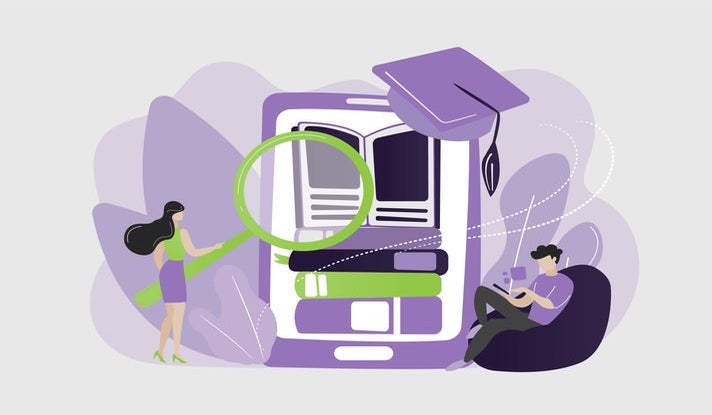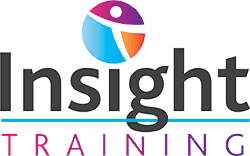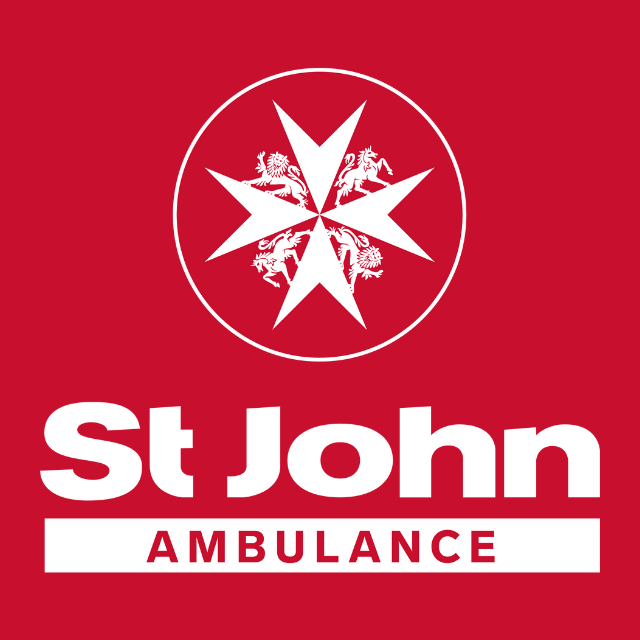What Qualification Should You Take On? (New Guide)

Certificates, Diplomas and Bachelor degrees can be excellent ways to further your education and development – but how can you decide which qualification will best suit you? And what’s the difference between them all?
Certificate qualifications
Certificates are available in 4 levels – I, II, III and IV. Certificate I is the most basic and Certificate IV is the most advanced. The higher level the Certificate, the more in-depth the content and the longer the duration. There’s also a huge range of Government Funded Courses at Certificate and Diploma level.
Certificate I and Certificate II courses
Some courses will start with a Certificate I short course or a Certificate II and are considered to be entry-level courses; they usually don’t require pre-requisites (or prior knowledge or education).
Certificate I & II courses are ideal places to start if you’re new to studying (or haven’t taken on a course in a long time) or if you need a very basic introduction to a particular field. It’s a great place to begin to get a taste of what an industry has to offer and are very popular among people wishing to upskill to improve their employment opportunities.
A Certificate III is also a great starting point if you want to start a new career or develop skills in a specific area. To gain entry into a Certificate III course, you will usually need to have completed one of these:
Certificate III courses
- A Year 10 School Certificate (or equivalent)
- A Certificate II
- A certain level of work/vocational experience
These requirements will vary depending on the type of course/industry involved. Recognition of Prior Learning (RPL) is a popular method of gaining entry into a Certificate II if a course has been done before, with the possibility of credit being gained towards the course based on your previous qualifications. In some areas, such as Fitness, a Certificate III is considered to be the entry-level certificate and so no Certificate II exists or is required.
Diploma qualifications
If you’re asking yourself, ‘What’s the difference between a Diploma and a Bachelor Degree?’, you’re not alone. While a Bachelor Degree is a higher level qualification, a Diploma is very valuable to anyone wanting to get a better understanding of the industry, the skills needed in a career and the practices and responsibilities that are needed to be successful in whichever industry you’re looking to pursue a career in.
What’s the difference between a diploma and a degree?
A Diploma or Advanced Diploma is essentially one step up from Certificate IV and involves more in-depth studies and assessments. In some cases, you may need to complete a Certificate IV before you can take on a Diploma. In other cases, you may be able to gain direct entry into a Diploma course.
Diplomas will usually require you to apply your technical and theoretical knowledge in a range of contexts to equip you for work in the ‘real world.’ They usually take around 1-3 years to complete and can be perfect if you want a more focused and involved level of study. Many Diploma courses also have a work placement component, ensuring you have the ability to gain crucial experiences under industry professionals.
A Bachelor’s degree is one of the most popular degrees you can undertake and is most commonly offered through universities. They usually take 3-4 years of full-time study to complete.
Entry into a Bachelor’s degree can be competitive, depending on the field of study, and often requires a high school certificate or extensive work experience. When studying a Bachelor’s Degree, you will usually specialise in one area and work on increasing your education, knowledge and experience in that field.
Bachelor’s degrees are globally recognised and can be mandatory for many jobs in the workforce. Beyond the Bachelor level of study, there are also many further options open to you, including Honours Degrees, Graduate Certificates/Diplomas, Masters of Arts and PhDs/Doctorates.
So, which qualification is right for you?
Lots of factors should be considered in your decision. These key points may help:
Hours of study
It’s important to be realistic about how many hours of study you can take on each week. Can you commit to something like 15-20 hours of study or do you only have room for 2-4 hours?
If you’re short on time, keep in mind that it may be more beneficial to choose a course/qualification that doesn’t demand too many hours per week. Generally speaking, something like a Certificate can also be a little less pressure than a Bachelor’s degree.
Duration of study
Think about how long you want to take to complete your studies. Are you interested in a short 1-month course? Do you only want to study for a year? Or are you willing to commit to 3-6 years of study?
You’ll need to weigh up these questions in relation to your career goals and your desired job/s in future. In most cases, the more hours you put in per week, the faster you will finish the course (for example, a Bachelor of Arts usually takes 3 years of full-time study, but if you only want to study part-time, you’d be looking at a duration of 6 years).
Study method
While most courses in different qualifications are available online, it’s important you determine which is the best for you, especially in terms of your commitments; both work or personal.
Most Diploma and Bachelor Degrees can be lengthy in duration, with most being undertaken on campus. It’s essential you work out what’s the best for you, online or in class as well as assess the blended course options.
Passion!
Just how passionate are you about your chosen area of study? If you’re unsure if a certain field is right for you, it may be more beneficial to start with a short course or a Certificate qualification.
This is a good way to ‘test the waters’ and determine if you enjoy the subject and want to continue with further studies.
Future employment
Consider what job you want to take on in future and what basic qualifications you will need.For instance, if you want to become a Day Care Worker, you will need a Certificate III at a minimum. If you want to get into Human Resources, consider whether a Diploma might increase your chances of employment over a Certificate qualification.
Unsure what sort of career you’d like to go in to? Try out our Career Quiz and discover what you were made for! Whatever your chosen path of study, just remember that you only get out of it what you put in!
Start your search by qualification, study type or subject today!
Browse Results
Diploma of Nursing (SA Only)
Build a meaningful career that makes a difference with the HLT54121 Diploma of Nursing. This nationally recognised qualification provides the essential skills, knowledge, and practical training needed to become a qualified Enrolled Nurse in Australia....


Graduate Diploma in Management
The Graduate Diploma in Management is an online postgraduate qualification that is ideal for busy senior managers, with a potential entry pathway through any of our Graduate Certificates and study that is highly supported, fits into your schedule, and...

Graduate Certificate in Management
The Graduate Certificate in Management is an online postgraduate qualification that is designed for newer and ambitious professionals, with entry possible through management experience alone and a study structure that easily accommodates full-time work...

Certificate III in Community Services (WA Only)
The Certificate III in Community Services is perfect for entry level community services workers who support individuals through the provision of person-centred services. Work may include day-to-day support of individuals in community settings or suppor...

Certificate IV in Fitness
Take the next step in your career and gain the qualification you need to become a Personal Trainer. If you currently work in the fitness industry as a Gym or Group Fitness Instructor, elevate yourself to the next level by studying the SIS40221 Certific...

Certificate III in Fitness
If you’re looking to begin your career in the fitness industry, studying the SIS30321 Certificate III in Fitness is the perfect qualification to get you started. Gain all the knowledge and skills you need to enter the industry as a Gym Instructor or Gr...

Personal Trainer Course
Join the fitness industry as a Personal Trainer and turn your love for fitness into a rewarding career by graduating in both the SIS30321 Certificate III in Fitness & SIS40221 Certificate IV in Fitness. Enjoy the flexibility of being your own boss...

Bachelor of Health Science (Clinical Nutrition)
Clinical nutritionists integrate traditional food wisdom and current scientific evidence to motivate individuals and communities to eat well and live healthier lives. The Bachelor of Health Science (Clinical Nutrition) is supported by a strong underpin...

Bachelor of Health Science (Naturopathy)
Naturopathy is a whole medical system combining theory (philosophy and principles) and practise that uses an array of natural therapies to support healing and maintain health. Naturopaths aim to treat the underlying causes of illness and disease. The c...

Certificate III in Community Services (Perth Only)
Are you a natural when it comes to providing guidance to people? Would you like to kick start a career in Community Services? The Certificate III in Community Services (CHC32015) is the perfect entry-level qualification for prospective Community Servic...

Certificate III in Individual Support (Ageing OR Disability) (Perth Only)
If you have a passion for helping those most in need, this qualification is one way you can utilise your knowledge for the benefit of others. Package the Certificate III in Individual Support (Ageing or Disability) (CHC33021) to save time and gain know...

Certificate lll in Early Childhood Education & Care (Perth Only)
If you love working with children and want to learn more about providing quality education and care in a range of environments, this course is for you. The Certificate lll in Early Childhood Education and Care (CHC30121) can provide you with an entry-l...

Certificate III in Individual Support (Disability) (SA Only)
The Certificate III in Individual Support (Disability) is designed to equip you with the practical skills and knowledge to support people living with disability in a variety of care settings. With a focus on person-centred support, you’ll learn how to...


Certificate III in Non-Emergency Patient Transport (VIC Only)
Our Promise We are confident in the delivery of our training. On successful completion of the course, graduates will be guaranteed a telephone interview for vacant Patient Transport Officer positions in the Non-Emergency Patient Transport division. So...

Diploma of Community Services (Perth Only)
The Diploma of Community Services qualification reflects the roles of community services, case management and social housing workers involved in the managing, co-ordinating and/or delivering of person-centred services to individuals, groups and communi...

Certificate IV in Business (Perth Only)
This qualification is suited to those working as administrators and project officers. In this role, individuals use well-developed skills and a broad knowledge base to apply solutions to a defined range of unpredictable problems and analyse information...

Certificate III in Process Manufacturing (Perth Only)
The Certificate III in Process Manufacturing is designed for those working or looking to work in production, warehousing, or factory roles. This hands-on course equips you with the practical skills needed to operate machinery, follow safety procedures,...

Certificate III in School-Based Education Support (Perth Only)
Are you interested in becoming a teacher’s aide? Work with teachers to create a comfortable and supportive environment for children’s learning. You will ensure lessons run smoothly while also developing the student’s literacy, numeracy and resear...

Certificate III in Allied Health Assistance (Perth Only)
A Certificate III in Allied Health is your entrance into the world of health services! This course will teach you to support workers in a range of fields such as audiology to social work. You will use your qualification to gain an entry-level job in ei...

Certificate III in Individual Support (Perth Only)
This qualification is for those who want to work in the community or in a residential setting, following a customised plan to give person-centred assistance to individuals who may need it due to ageing, disability or other circumstances. Work involves...


